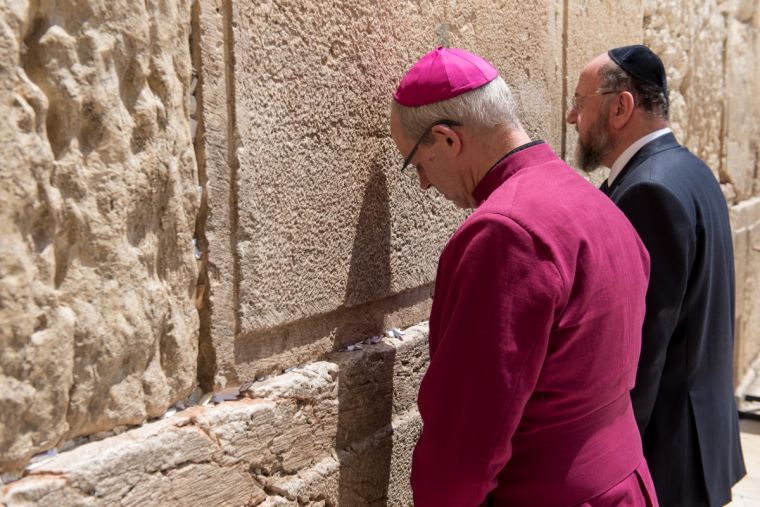Archbishop of Canterbury prays for peace as he visits Christian, Jewish and Muslim sites in Jerusalem

The Archbishop of Canterbury Justin Welby visited some of the holiest sites in Christianity, Judaism and Islam on Thursday as part of a 12-part tour of the Middle East.
Wonderful ecumenical welcome at Church of the Holy Sepulchre in #Jerusalem yesterday with Archbishop Suheil. pic.twitter.com/xP4NnHGVbc
— Justin Welby ن (@JustinWelby) May 4, 2017
The head of the global Anglican church joined Catholic, Orthodox and Coptic traditions in the Church of the Holy Sepulchre – the site where Jesus was crucified and buried according to tradition. Welby prayed for peace alongside Archbishop Suheil Dawani, the fourteenth Anglican Bishop in Jerusalem, in the Church.
Together we pray for the peace of the risen Christ in our world today. #Jerusalem pic.twitter.com/5mEgezRxSs
— Justin Welby ن (@JustinWelby) May 4, 2017
The ecumenism of action is to go in love to those that have no love - even those who want no love - and say that Christ is risen. pic.twitter.com/LQdAHO8TAZ
— Justin Welby ن (@JustinWelby) May 4, 2017
He then went on to visit Haram al-Sharif, the ancient holy site venerated by Muslims, Jews and Christians within the Old City of Jerusalem in Palestinian territory. Welby made a point of referring to the site by its Islamic name, rather than its Jewish name of Temple Mount.
Visited Haram al-Sharif in Jerusalem with Archbishop Suheil yesterday – grateful for tour with Sheikh Azzam al-Khatib, Director of the Waqf. pic.twitter.com/LqNVoqu7Ie
— Justin Welby ن (@JustinWelby) May 4, 2017
Welby will be hoping to stave off criticism from his previous trip in 2013, where he was accused of ignoring the Palestinian Christian communities, by visiting Bethlehem next week, where he will meet with the Palestinian Christians and the city's Christian Mayor, Vera Baboun.
He is expected to comment on the plight of Palestinian Christians.
Yesterday he prayed with Chief Rabbi Ephraim Mirvis at the Western Wall in Jerusalem, before visiting the Yad Vashem Holocaust memorial museum where he spoke against antisemitism as 'the root of all racism' at the world-renowned and haunting museum.
Calling for bridges to be built between the Christian and Jewish peoples, Welby said: 'Within European culture, the root of all racism, I think, is found in antisemitism. It goes back more than 1,000 years in Europe. Within our Christian tradition, there has been century upon century of these terrible, terrible hatreds in which one people, who at the same time have contributed more to our culture as a people than almost any other that one can identify, that one people are also hated more specifically, more violently, more determinedly, more systematically than any other people.'











